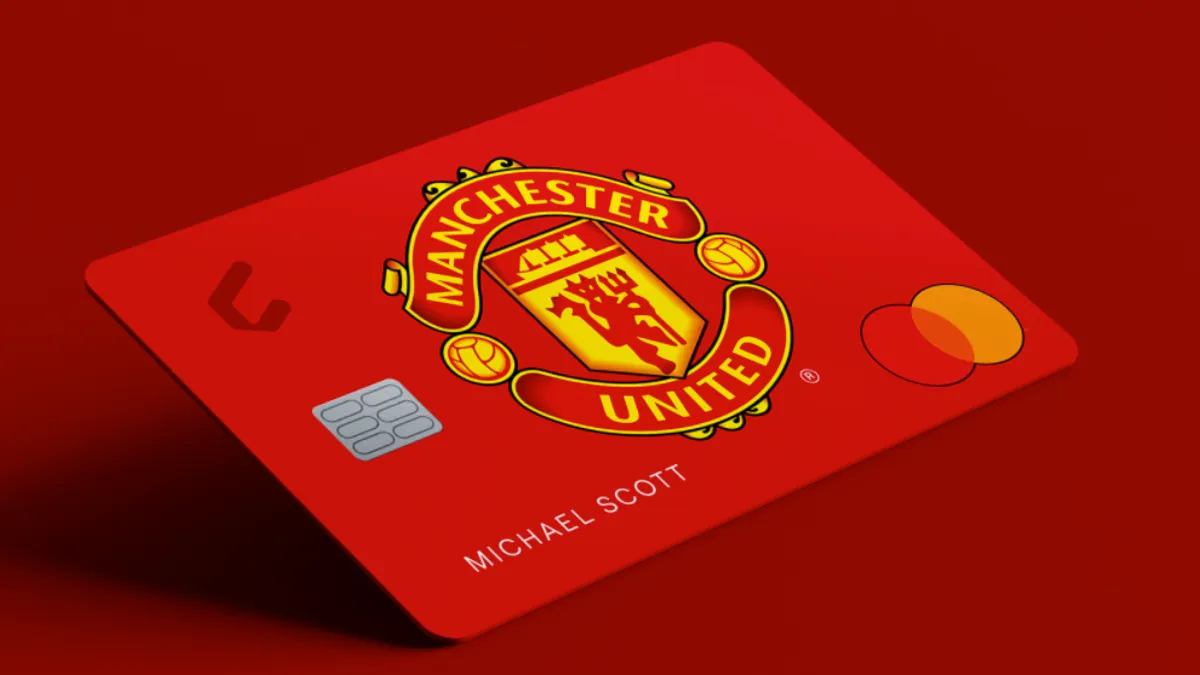Dive Brief:
-
Cardless, the U.S. based-fintech that issues credit cards, has partnered with British soccer club Manchester United to provide co-branded credit cards to millions of fans of the sports club in the U.S.
-
The co-branded credit card will allow users to access merchandise discounts, streaming, and match-day beverages perks from the club, along with providing cashback on purchases.
-
Many digital brand names are offering white label cards to keep their customers through loyalty programs while generating alternative sources of revenue, industry analysts told Payments Dive.
Dive Insight:
In a time when sports fandom has gone digital, sports organizations are looking at different avenues to hold on to and expand their support base and revenue stream.
"Manchester United has a tremendous fanbase in the U.S., oftentimes larger than many of the U.S. teams themselves," Cardless Founder and President Michael Spelfogel told Payments Dive. "This product helps serve a market not previously filled by traditional financial partners."
Manchester United is owned by the Glazer Family, American investors who bought a majority stake of the club in 2005. The soccer club went public on the New York Stock Exchange in 2012 and has nearly 34 million fans in the U.S. Although the club hasn’t been winning trophies on the pitch in recent years, they have been able to stay profitable on the backs of a global fan base and sponsorship deals. The new card offering seems like another ploy by what used to be a legendary club to monetize its fanbase.
"The co-branded credit card will initially be available to official Manchester United Supporters’ Clubs and will eventually be extended to all U.S. fans," Spelfogel said. "Cardless [also] allows for instant provisioning of virtual cards after approval." Customers can earn 10% off official merchandise and accumulate points in bars and restaurants on match day.
Last year, Cardless partnered with NBA team Cleveland Cavaliers to launch their credit cards as well. Cardless has "seen a remarkable uptick in applications and interest through purely organic channels," Spelfogel said. The company refused to disclose how many cards it has in circulation.
The San Francisco-based company raised $10 million in Series A funding round from Greycroft, Accomplice, Clocktower Ventures, and Pear last year. First Electronic Bank, a bank based in Salt Lake City, issues Cardless’ white label cards.
Private label cards have been losing users for the past year. In February 2020, there were 231.6 million private label accounts, compared to 196.3 million in February 2021, a 15.4% drop year-over-year (YoY), according to an Equifax report.
Consumers — especially younger generation — are pivoting away from credit cards, as they have found alternative credit options for large ticket purchases, Ted Rossman, senior industry analyst at CreditCards.com, told Payments Dive.
While white-label cards saw their user base shrink drastically, many digitally native companies like Instacart and DoorDash are planning on rolling out their own credit cards.
"Customer loyalty is the main thing and it's also reducing some costs like interchange [fees] and raising revenue through things like the finder's fee for bringing in new customers," Rossman said.
Private label credit cards struggled due to the COVID-19 pandemic. Consumers spent less and moved away from credit card transactions. Visa's credit card spending volume was down about 9% and debit volume was up 20%, in Q4 2020.
Although white label cards are shrinking in usage, digitally native companies are planning on issuing them to increase customer loyalty, tap an alternative stream of revenue and tie them into rewards programs, said Tim Zawacki, principal analyst at S&P Global Market Intelligence.
Cardless is planning on launching a new white label card offering each month this year after seeing a surge in demand. "This will result in more new co-brand programs in 2021 than every other legacy issuer combined," Spelfogel said.














